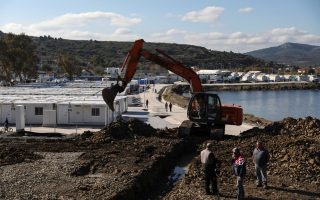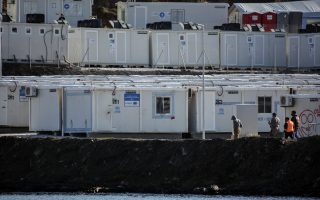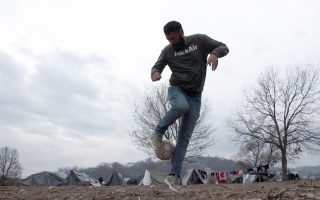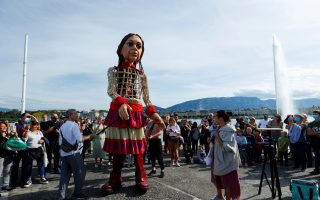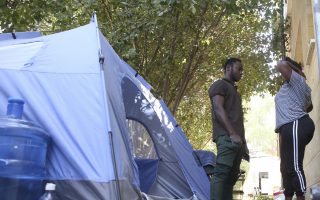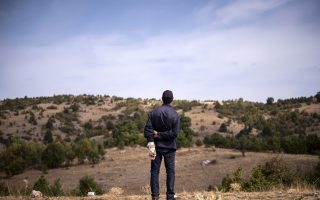From a Chios camp to a Paris lecture hall
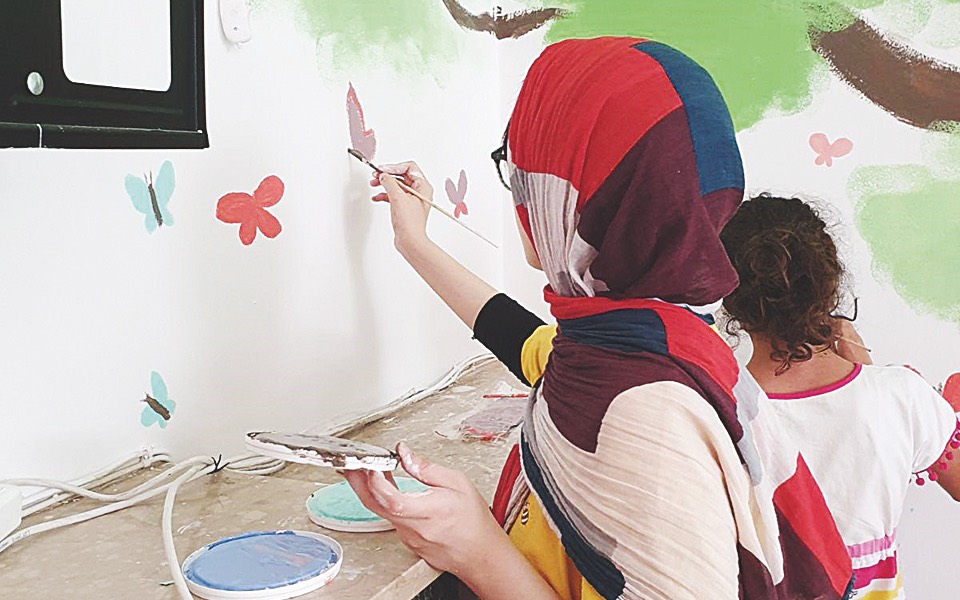
“If someone had told me two years ago that I would be where I am today, I would not have believed them. I hardly believe it now,” says Eric, a refugee from the Democratic Republic of Congo now studying economics in France.
“I left my country in fear for my life. I had never imagined that the perils on the journey would be worse than those in my country,” he says today, some two-and-a-half years after he landed – aged 16, wet, exhausted and terrified – on the shores of the eastern Aegean island of Chios.
“The trafficker had me in the water, swimming and pushing the boat,” he says of the journey from Turkey. “There were people in the boat with fear in their eyes, screaming, sobbing, praying in every possible language. We were like hunted animals. The Turkish police on one coast, the Greek police on the other and nowhere to go except into the waves,” he says.
He ended up at the island’s migrant reception and identification center. “It’s a place where you learn what the human animal is capable of. An enclosed space, with hundreds of people sharing a few square meters and fighting over things other people take for granted: a blanket, a plate of food, a piece of clothing, a shower. You live, sleep and wake up with the fear that someone will attack you for your spot or your place in the line for the toilet. Or for no reason at all.”
Who knows where Eric would be today if he had not crossed paths with the people of Metadrasi. “They literally fished me out of hell,” he says of his good luck at being placed in the organization’s transitional shelter for unaccompanied young minors on Chios. He started feeling safe, sleeping in a proper bed, eating proper food. He learned Greek and improved on the English he had learned at the camp on his own. He dreamed of going to school and, thanks to the Greek nongovernmental organization, he got into a very good one in Athens, while also becoming the first resident of Metadrasi’s supported living program.
“I was so worried about him,” the president of Metadrasi and Eric’s mentor, Lora Pappa, tells Kathimerini. “I’d send him messages: ‘Have you eaten?’ I’d take him out to dinner after work. That’s how we became close.”
Eric was a star pupil. “Miss Lora encouraged me and guided me. When she told me she was proud of me, it would make me try harder,” says Eric, who graduated in June with honors. “I had people to celebrate with, a family to take a picture with, holding my diploma.”
His grades got him into university in France. “I am finally proud of myself. I am no longer uprooted. I belong to the future. All refugees can become part of a better future for your country as long as you work with them,” he says.
Eric wants to pursue a master’s degree and then return to Greece, “to help the country, the Greeks, because they’ve been through a lot.”
Metadrasi was the first organization in Greece to set up transitional accommodation for unaccompanied minors on the islands, protecting children and teenagers from becoming further entangled in the nets of smugglers and traffickers. The NGO’s people knew that minors could fall through the cracks at the big camps and be lost. The first shelter was created on Lesvos in December 2015, with the help of The Hellenic Initiative, while the second was on Samos, and the French Embassy made the one on Chios possible.
The aim was for the children to spend a month in these facilities before being transferred to more permanent accommodation on the mainland. During that month, the youngsters had help and support from psychologists, social workers and educators, and received healthcare and legal advice.
The initiative ran into trouble in 2017 when new rules were introduced by the Finance Ministry governing how such programs operate and determining whether they would receive European Union funding. This list of rules, which was drawn up without consultation with the organizations that were affected, stipulates that accommodation for minors needs to be gender-segregated and age-specific and cannot be of a transitional nature.
“If we decided that our shelters would be for boys only, this would condemn the girls to the dangerous and squalid conditions of the camps, and vice versa. It’s unconscionable, at the borders especially, for minors to be left without a spot because they’re the wrong age or gender,” says Pappa. “So, we said, ‘No, thank you,’ and pursued a different, more difficult path, and spent three-and-a-half years looking for backing,” she says, adding that Metadrasi started receiving support in June 2020 from the Asylum and Immigration program of the EEA and Norway Grants, managed by Crowe SOL in partnership with HumanRights360.
The time minors spent in the transitional shelters also started increasing as spots at the permanent facilities on the mainland dwindled. “We had to adapt. Many kids have spent so long there, they don’t want to leave. We also developed integration activities like language courses and tutoring,” says Giota, who is responsible for the facilities on Samos and Chios, declining to give her last name.
“What is impressive is how eagerly the kids participate in cultural activities and sports events, and their thirst for learning the local history and customs. The unaccompanied minors have become friends with their classmates and ‘home’ – as we call the shelters – is always open to their friends and those friends’ parents.”
Metadrasi has hosted nearly 300 unaccompanied minors on the islands between December 2015 and this October. “Dozens of children who were in the camps facing very uncertain futures have been saved,” says Pappa. “And for every one of them, we have tried to make their dreams come true – like our boy studying in France,” she adds.
